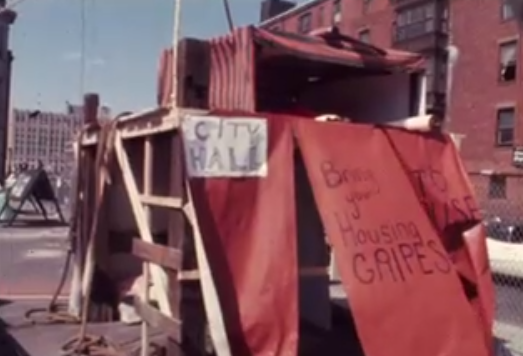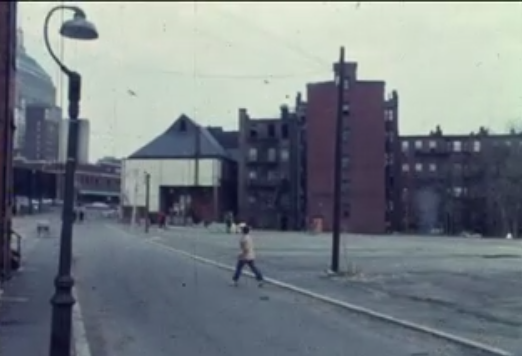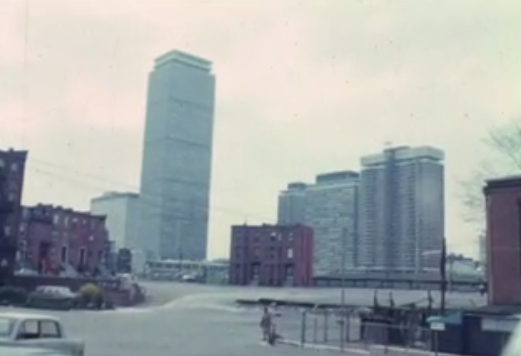The Burn Is Back
The Red Sox are champions again, which means Boston may finally be returning to its rightful place of being loathed.
By Joe Keohane | Boston Daily | October 31, 2013 6:58 pm
For Bostonians, it is a strange thing to be liked. We’re used to being swamped with bile from the rest of the country, which seems perpetually annoyed at us for how we talk, how we root, and the fact that Hollywood has, for reasons past understanding, suddenly decided to set 70 percent of its movies somewhere between Charlestown and Southie. And yet, in the wake of April’s tragic Marathon bombings, all of the mockery stopped. The nation rallied to our side. The Yankees played “Sweet Caroline.” Boston became unassailable.
With the Red Sox back on top, though, it appears that things might finally be reverting to normal. Today on Gawker, Hamilton Nolan, one of the city’s most savage longtime critics, declared, “Fuck Boston,” and proceeded with a long list of things that the city ought to be fucked for. “Fuck the Boston Red Sox. Fuck your dirty beards. Fuck your scrappy-band-of-sailors persona. Fuck your iconic little ballpark. Fuck the big green wall in your outfield. Fuck the people wearing Red Sox hats, particularly pink ones. Fuck your undeserved underdog attitude. Fuck your celebrity fans. Fuck your regular fans. Fuck your riotous celebrations.” He went on. The predictable outrage ensued on whatever is your favorite social media channel.
Several months ago I met Nolan at a bar in Brooklyn, to try to understand the source of his antipathy. An amateur boxer from Florida, that penis-shaped, hurricane-bedeviled state in the South dominated by a tertiary Bush, which functions as a sort of giant drip pan for America’s reprobate population and whose most notable feature is the fact that, wherever you go there, you have an even chance of seeing a dead alligator cooking on a white-hot, traffic-choked byway lined with strip malls … Where was I? Right, Hamilton Nolan has been the most gleeful and vitriolic of Boston’s critics, slashing at the city at the slightest provocation. He told me that he hates Boston sports fans and the whole genre of white-gangster movies inspired by the city, but for the most part it’s recreational. “Making fun of cities is the same as hating a sports team,” he said. “It’s not rational, and it’s not factually based.” Nolan’s favorite prey animals are DC and Boston, but the revealing thing about Boston, he told me, “is how mad they get and how seriously they take it.” He likened it to when you’re hanging out with a bunch of friends and one of them busts your balls. “The worst thing you can do is start crying about it.” So the hate is just feigned? “I don’t have an actual problem with Boston,” Nolan said. “I can’t say I have any firsthand evidence of Boston being a shithole. But it’s not about whether Boston sucks or not, it’s about whether you can goad the people into getting offended.”
· · ·
For as long as there’s been a Boston, people have hated Boston. The reasons have been impressively consistent across the past two centuries. Bostonians are smug, puritanical, inhospitable, racist and/or pinko, and hopelessly blinkered and insular, and they go about all this in a manner that makes it next to impossible to tell if they’re suffering from the world’s worst inferiority complex or the world’s most gigantic superiority complex (in reality, probably both at once).
We can argue the merits of these charges all day, and, in fact, I spent many years writing about what it means to be a Bostonian, and what others perceive it to mean. I’ve cooed my love for the place and denounced it from on high in equal measure, but, even having left town four years ago after three decades there, I still subscribe firmly to the “You can’t say that about Boston—only I can say that about Boston!” school of intercity combat. I remain, for good or ill, a Bostonian.
With that being said, I can declare the following: (1) Though a good deal of the stereotype is true, it’s obviously not the whole story; and (2) it’s a good sign when hillbillies think you’re a bunch of effete liberal dilettantes using the flag to wipe up spilled caviar, while at the same time effete liberal dilettantes think you’re a bunch of braying vulgarians using the Cradle of Liberty as your own personal vomitorium. That’s the sweet spot, that is.
In the months leading up to last April, though, we saw a surge in a different kind of anti-Boston sentiment, one that’s harsher and less focused, nonpartisan, gratuitous, and indiscriminate. With life thankfully returning to normal—and the rest of America again feeling safe to rag on us—we might as well understand it. While the old tropes are occasionally invoked, it’s largely as pretense. The hate seems to exist for its own sake, fathomless and inscrutable.
It all started in the summer of 2011 when GQ called Boston the worst-dressed city in America, which, despite the unfortunate local propensity for fleece and ill-fitting khakis, was patently absurd to anyone who’s ever spent any time in the great flyover. It got worse from there. In a recent bit about the Supreme Court hearing arguments against the Voting Rights Act, The Daily Show ran a clip of Chief Justice John Roberts asking if “the citizens in the South are more racist than citizens in the North.” Stewart cut in: “No, we’ve been to Boston,” to the delight of the New York crowd, who, in a more sensible world, would be directing their derisive hoots of laughter at Alabammy. Or at least at their (and now my) own police department, dauntless as it’s been in the goal of stopping and frisking every single black person in New York City.
But it was the Deadspin writer Drew Magary who went all in, writing, “People from Boston labor under the mistaken belief that being a relentlessly cynical asshole makes you tough. Endearing, even. They believe their deliberate misery makes them harder and deeper than you. It’s all BULLSHIT…. There’s nothing tough about these people. France could invade New England tomorrow and seize 80 percent of the land with minimal effort, because Tommy from Quinzee would be too busy demanding that the bartender put more Everlast songs on the jukebox.”
Magary, who lives in DC—home to literally the worst people in America, a distinction for which it has been dubbed “Hollywood for ugly people,” and which is also the only city better than Boston at hiding its African-American population from outsiders—has authored a growing body of anti-Boston literature (“few have made a better living goofing on Boston people more than I,” he told me).
He detests Boston sports fans, the reflexive cynicism annoys him, the weather sucks (duh), and he hates the white gangster-movie thing, too. But generally, Magary’s issue lies outside of the city. “My goofing on Boston has, in general, come from famous people who no longer live in Boston who won’t shut up about how REAL Boston is,” he said, singling out Mark Wahlberg. “There’s nothing inherently grittier or tougher about Boston’s shitholes. Just because Whitey Bulger grew up near you doesn’t mean you get to act like you’re patrolling the Gaza Strip.”
Fair enough, sort of, but every city has a bunch of guys who think they’re tough because they grew up near a bad neighborhood. It’s a pretty thin justification for such an abundance of vented public spleen. Has Magary spent much time in the city? “Even though I goof about Boston online a lot,” he says, “I’ve actually enjoyed most of the time I’ve spent in the city itself. My brother lives outside of Boston. My aunt lives in Charlestown. Traffic is fucking awful, but usually I enjoy myself.”
As someone who spent the first three decades of my life in the area (and grew up in Quincy and owned that Everlast record), the intensity of Boston-directed loathing is something of a mystery to me. Of course Boston has its problems. The T is a mess, politics is a farce, and it remains the second-most-unfriendly place I’ve ever been to (by the grace of Bandera, Texas, go you). But by many standards measurable and immeasurable alike, it’s one of the great American cities. But it was in March that, for the first time since I left, I actually felt the twinge of provincial defensiveness emerge from retirement. The Onion ran a piece that legitimately got to me.
The satirical newspaper published a story headlined “Pretty Cute Watching Boston Residents Play Daily Game of ‘Big City.’” The satirical piece depicted Bostonians earnestly rushing around, playing at business and pretending to be chic urbanites, while the rest of the country looks on, utterly beguiled.
“When they look down at their watches and start hurrying down the street like they’re headed to some sort of huge, important meeting, it’s hard not to smile,” says one man in the article. “I mean, they look like they really think they are doing something significant.” Another adds, “All that hometown pride for a place so small and inconsequential? It melts my heart.”
Just like every other time Boston has come under (perceived) criticism, the response from inside the city seemed calculated to make everything worse. The Globe dutifully stepped on the first rake, running a jokey Boston.com blog post purporting to uncover the “shocking truth” that “The Onion, a website that claims to be ‘America’s Finest News Source,’ is in fact not a legitimate news source, but a website full of satire and fake news.” The response to that meek little defense came in fast and mean. Gawker’s Nolan dutifully mocked the Globe and assailed the city for being “a cramped Hollywood crime movie set populated primarily by the lesser Wahlbergs…full of flinty Jameson addicts in tattered ‘Garciaparra’ jerseys roaming the streets in search of people different from them to harass.” He concluded, “Get it straight, Boston: We don’t kid because we love. We kid because Boston sucks.”
If only it had ended there. But, naturally, it didn’t. John Guilfoil, a deputy press secretary for Mayor Menino, stepped on the next rake, letting slip a great and blinding gust of angrified misspellings, tweeting at Nolan: “Id say ‘dem’s fightin words’ but you didnt say nething but ‘boston sucks’ I wanna say ‘screw you’ but you really should visit.” And then: “I don’t know you from a hoel in the wall, but based on your opinion of Boston, you should actually experience the city.” And then: “Or you could just be an indelible smartass trying to get hits on Gawker. Either way, your opinion of Boston is way off.”
Oh, Jesus. Nolan promptly posted Guilfoil’s tweets, then ex-Bostonian Richard Lawson wrote a damning with-faintpraise rebuttal for The Atlantic Wire: “For all intents and purposes, I don’t really like Boston. It’s just that there’s plenty to like about Boston; the hate is often wildly overdone and misguided.” For good measure, though, he added, “Calm down, I’m not saying I’m moving back.”
I reached out to Seth Reiss, the head writer at the Onion. I wanted to understand exactly how Boston had damaged him to the point that he felt the need to lob such a savage counterattack—and from the Onion office in, of all places, Chicago, the greatest city in the great Midwest (which is kind of like being the best-endowed man in Galway), and a place with a subway system that has succeeded in the impossible contest to be worse than the MBTA.
Reiss responded via email: “When the idea was pitched, people laughed and connected with it—three of whom had at one point lived in the area for over a year of their lives. The piece is playing into the whole Boston inferiority complex thing. That’s all.” So he doesn’t hate Boston? “I went to Boston University and enjoyed my time in Boston very much,” he wrote.
· · ·
In 1947, Cleveland Amory wrote a book called The Proper Bostonians, which should be given a place on every shelf in the city for the universal truths it contains. In it, Amory invokes John Marquand, a writer and Somerset Club member who was “severely critical” of the Proper Bostonians, but who “declared that all Americans have a sneaking fondness for the city.” (Though if this is true, responded Amory, “certainly many Americans have kept this feeling of fondness to themselves.”)
Ever thus for Bostonians. Why? Who cares? The outsider position on Boston is, in the end, irrelevant. They don’t kid because they care, and they don’t kid because they don’t care. They kid because we can be relied upon to freak out and step on rakes (and, more important, read, click, and comment) every time someone so much as says, “Boston sucks.”
The city’s response to criticism is either to rage incoherently or start pathetically regurgitating Chamber of Commerce bullet points. Both of which are precisely the wrong response, because each not only inspires total contempt, but also ensures that the cycle will continue.
So instead, let’s first enjoy that they care enough to hate. After all, the warmth we felt in the wake of the Marathon bombings was genuine. And Boston does wield disproportionate influence for a small city, meaning it’s weirdly prominent in the culture (even if the current manifestation is inspired by a version of the city that ceased to exist 15 years ago). As Drew Magary put it: “If Cheers was about a former Brewers pitcher, and there were 5,000 books about the Brewers being cursed for never winning it all, and ESPN put out a Milwaukee issue, and Good Will Hunting had been set at Marquette, you’d be like, ‘What is with all the Milwaukee love? Jesus.’”
What else should we do? Easy. Bostonians are no strangers to casual abuse and confrontation. The entire bilious nature of online commentary can be traced back to the way Bostonians speak to one another on a day-to-day basis. So, if just shutting up isn’t an option (and it isn’t), don’t complain, don’t back down, don’t play the victim and search the skies for an explanation for the cruelty of others. The answer, for the next incoming salvo, is to climb down off the cross, summon all that equally prodigious cold-weather native meanness, bind it to that worldly education, and savor the combat. Savor, also, that it has returned.
Joe Keohane is a Senior Editor for Esquire Digital. He tweets at @JoeKeohane.










